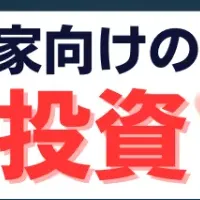
New Skills Assessment Standards for CCUS Workers in Japan Expanded to Include Soil Improvement and Caisson Skills
Expansion of Skills Assessment for CCUS Workers in Japan
The Japanese Ministry of Land, Infrastructure, Transport, and Tourism (MLIT) has recently announced significant updates to the skills assessment standards for CCUS (Carbon Capture, Utilization, and Storage) registered workers. Effective July 1, 2023, the evaluation criteria will now include two new categories: Soil Improvement Technicians and Caisson Technicians. This change marks a pivotal expansion in the range of professional competencies assessed within the construction sector, encouraging enhanced qualifications and career development.
Overview of the Skills Assessment System
The traditional skills assessment system evaluates construction workers based on their qualifications, experience, and job duration. Participants are categorized into four skill levels, which reflect their capabilities and competency in specific trades. This objective evaluation method is centered around the detailed competencies that workers possess and can prove through their professional experiences.
Additionally, to partake in the skills assessment, specialist contracting organizations must develop their own evaluation criteria. These criteria must receive approval from the Minister of Land, Infrastructure, Transport, and Tourism, ensuring that they meet national standards for quality and effectiveness.
New Criteria and its Significance
With the inclusion of Soil Improvement Technicians and Caisson Technicians, the updated assessment framework will now recognize qualifications from an expanded set of 44 fields. The registration of these additional categories aims to elevate the workforce's skills, facilitating development in specialized construction sectors. The assessment results will lead to the issuance of construction career upgrade cards, differentiated by skill levels: Gold, Silver, Blue, and White. This card system not only validates workers' competencies but also serves as a tangible representation of their professional growth.
The specific organizations involved in the establishment of the new criteria include the General Association of National Construction-Recycling and the Japanese Association of Air Pressure Technology, indicating a collaborative effort among various industry stakeholders in advancing skill recognition in these critical areas. The incorporation of soil improvement as a skill acknowledges the growing emphasis on sustainable construction practices, while caisson technology reflects the advances in engineering practices vital for infrastructure development.
Future Implications and Conclusion
The expansion of the skills assessment program signifies a more inclusive approach to worker evaluation, fostering an environment where professionalism and expertise are recognized and rewarded. Participants in the construction industry can look forward to enhanced career opportunities as a result of this initiative, which supports both individual growth and overall sector advancement. For more detailed information regarding the skills assessment system and its implementation, stakeholders are encouraged to visit the official MLIT website.
In conclusion, this change reflects MLIT's commitment to enhancing the construction industry's capabilities and contributes positively to Japan's economic development strategy. By focusing on skill enhancement and public recognition of expertise, the initiative seeks to prepare construction workers for the challenges and advances of the future.
Topics General Business)










【About Using Articles】
You can freely use the title and article content by linking to the page where the article is posted.
※ Images cannot be used.
【About Links】
Links are free to use.